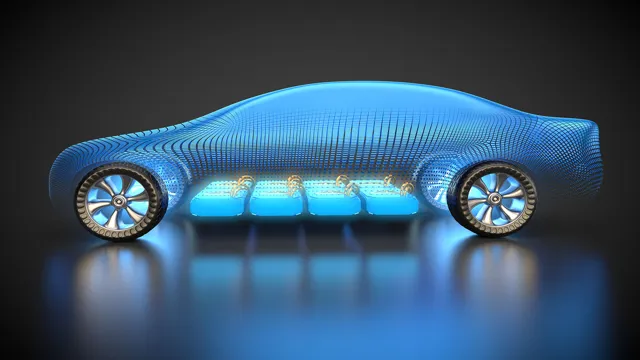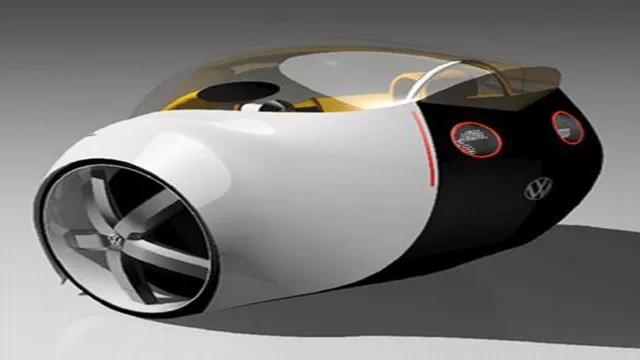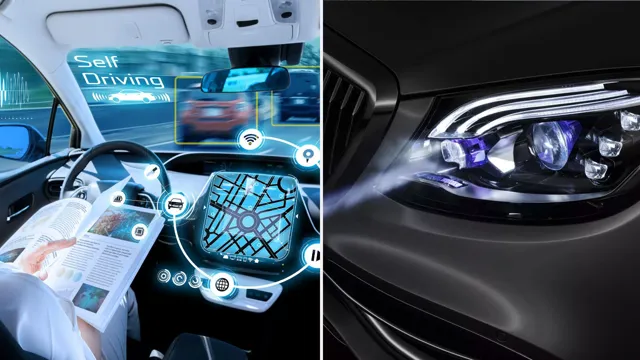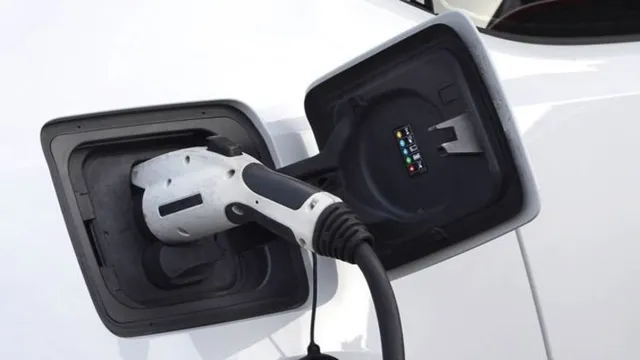Revolutionizing Transportation: The Advancements in Battery Electric Car Technology
Electric vehicles (EVs) are rapidly gaining popularity as people become more aware of the benefits they offer over gas-powered cars. One of the most popular types of EVs is the battery electric car, which uses electricity stored in a rechargeable battery to power an electric motor. These cars are quickly becoming a viable alternative to traditional vehicles, and here’s why: they are environmentally friendly, cost-effective, and offer a smooth and quiet ride.
Unlike gas-powered cars, battery electric vehicles produce zero emissions. This makes them an eco-friendly alternative that contributes to cleaner air and a healthier environment. Additionally, EVs are cost-effective in the long run as they are cheaper to maintain and operate compared to traditional vehicles.
They also provide a smoother and quieter ride, which adds to the overall driving experience. The technology behind battery electric cars is constantly improving, making them a more viable option for everyday users. With new advancements in battery technology, electric vehicles can travel further on a single charge, and charging times have significantly decreased.
As a result, driving ranges have increased, and range anxiety has become less of an issue. Overall, the benefits of battery electric cars are significant. They are environmentally friendly, cost-effective, and provide a smooth and quiet ride.
As the technology continues to evolve, it’s clear that EVs will play a significant part in shaping the future of transportation. So why not consider making the switch to a battery electric car today?
Environmental Benefits
Battery electric car technology is an innovative solution to reducing carbon emissions and promoting a cleaner environment. By using electricity instead of gasoline, these cars produce zero emissions, generating no pollutants that contribute to air pollution or global warming. This technology significantly reduces the carbon footprint and mitigates the environmental impact of transportation, which is one of the leading contributors to greenhouse gas emissions worldwide.
Moreover, battery electric cars come with an added advantage of using renewable energy sources such as solar or wind power, minimizing the reliance on non-renewable fossil fuels. By embracing battery electric car technology, consumers can be confident that they are making a positive impact on the planet by reducing their carbon footprint and promoting a cleaner, healthier environment for future generations.
Reduces Carbon Emissions
The green revolution has paved the way for many sustainable practices that help reduce carbon emissions. One of the biggest contributors to carbon emissions is transportation. Vehicles that run on fossil fuels are responsible for releasing harmful gases into the atmosphere that contribute to the greenhouse effect.
However, the emergence of electric vehicles has provided a glimmer of hope in the fight towards a sustainable future. These vehicles run on electricity, which means they produce zero emissions. This not only reduces carbon emissions but also improves air quality.
By using electric vehicles instead of gas-guzzling ones, we can significantly reduce our carbon footprint and take a step towards a cleaner, healthier planet. It’s time we all do our part in tackling climate change and embrace sustainable practices that benefit both the environment and ourselves.
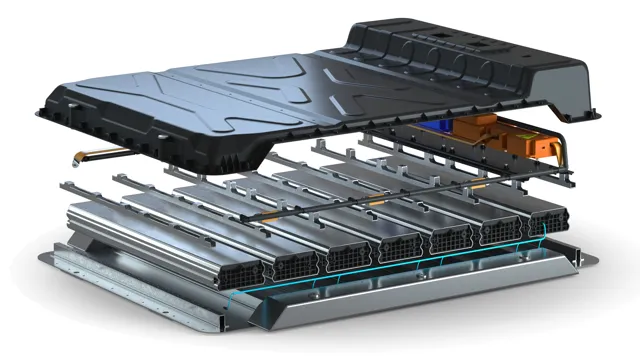
Minimizes Air Pollution
One of the biggest advantages of using Electric Vehicles (EVs) is their ability to minimize air pollution. Traditional gasoline-powered vehicles emit harmful pollutants into the air, contributing to smog and air pollution. However, because EVs use electricity for power, they do not produce any tailpipe emissions.
In fact, even when you take the emissions generated from charging an EV into account, the total level of emissions is still lower than that of traditional vehicles. This is especially beneficial in urban areas where the concentration of vehicles is high, and air pollution can have significant health impacts on people. By switching to EVs, we can significantly reduce our carbon footprint and improve the overall air quality.
It’s an investment in our future and our planet.
Economic Benefits
Battery electric car technology has the potential to bring numerous economic benefits. It can significantly reduce the dependence on fossil fuels and lower the costs associated with traditional internal combustion engine vehicles. As electric cars are more efficient in converting energy into motion, they can save drivers money in fuel costs.
Furthermore, they require less maintenance than gas-powered vehicles, which means fewer repairs and oil changes, saving the owner money in the long run. Additionally, the production of battery electric cars can create new jobs and drive economic growth and innovation. The adoption of this technology could also lead to the development of new industries related to the production, maintenance, and distribution of electric vehicles.
Ultimately, the economic benefits of battery electric car technology extend far beyond individual car owners and could have a significant impact on the overall economy.
Cost Savings on Fuel and Maintenance
One of the biggest benefits of using alternative fuel vehicles is the cost savings on fuel and maintenance. Not only are many alternative fuels cheaper than traditional gasoline, but they also often require less maintenance, reducing overall costs for vehicle owners. For example, electric vehicles have lower fuel costs than gas-powered vehicles and require less maintenance due to having fewer moving parts and no oil changes.
Propane and natural gas vehicles also have lower fuel costs than gasoline and diesel vehicles. Additionally, many alternative fuel vehicles have longer lifespans, resulting in even greater cost savings over time. Switching to alternative fuel vehicles can be a smart economic decision for both individuals and businesses looking to save money on transportation costs.
Increased Energy Independence
Increased energy independence has numerous economic benefits for countries. When a nation can produce its own energy instead of importing it from other countries, it becomes less dependent on the global market and more self-sufficient. This leads to increased job opportunities as new energy projects and industries are created, which boosts economic growth.
Additionally, it reduces the need for countries to spend large sums of money on importing energy, which can be used to fund other domestic projects. Energy independence also means that countries no longer have to worry about geopolitical conflicts and risks associated with importing energy from politically unstable countries. This not only provides a sense of security but also helps to promote peace and stability in the global community.
Overall, increased energy independence is a win-win situation that drives economic growth, promotes security, and leads to a more stable and prosperous world.
Technology Advances
Battery electric car technology has advanced significantly in recent years as car manufacturers prioritize sustainable energy options and consumers demand more environmentally friendly transportation. The primary focus has been on improving battery efficiency and increasing the driving range of electric vehicles. Lithium-ion batteries have replaced traditional lead-acid batteries, providing a more substantial energy density and longer lifespan.
Additionally, advancements in regenerative braking systems and aerodynamics have improved energy recapture, further increasing efficiency. As these technologies improve, the cost of electric vehicles continues to decrease, making them a more accessible option for the average consumer. With a long-term goal of eliminating carbon emissions in transportation, battery electric car technology will undoubtedly continue to advance and change the way we drive.
Battery Efficiency Improvements
Battery efficiency has improved significantly over the years, thanks to the continued advancement of technology. With the rise of electric vehicles, this progress has become even more crucial. One of the key developments in battery efficiency has been the growth of solid-state batteries.
These batteries utilize solid electrolytes rather than liquid ones, which increases both their safety and energy density. Another significant development is the evolution of lithium-ion batteries, which have a higher density and longer lifespan compared to their predecessors. New materials are also being incorporated into battery design, such as silicon anodes, which allow for better energy storage and faster charging times.
With these advances, we can look forward to a future where battery-powered vehicles and technology become even more efficient and sustainable.
Extended Range Capabilities
Extended Range Capabilities have been revolutionized by several technology advancements, especially in areas such as energy storage, electric motor efficiency, and aerodynamics. Modern batteries possess greater energy density and have longer life cycles, allowing aircraft to fly longer ranges with lower recharge rates. Efficiency gains in electric motors have led to higher power output with less energy consumption.
Simultaneously, advancements in aerodynamics in airframe and wing design have reduced drag and increased lift, improving range, and overall performance. These breakthroughs have enabled aviation to achieve new heights in terms of long-range travel and have paved the way for a more sustainable air transport sector. With these extended range capabilities, air travelers can go more places, more efficiently, and with less impact on the environment.
The Future of Battery Electric Cars
Battery electric car technology has come a long way in recent years, and it’s only going to get better. As car manufacturers invest more in research and development, the batteries that power electric cars will become more efficient, smaller, and cheaper to produce. This means that the range of these vehicles will increase dramatically, while their size and weight will decrease.
In the future, we may be driving electric cars that can travel 500 miles on a single charge, with batteries that take up less space than a traditional gas tank. Additionally, advancements in battery technology mean that charging times will also decrease, making it easier and more convenient to charge your electric vehicle on the go. With these improvements, battery electric cars will become more than just environmentally friendly alternatives to gas-powered cars; they’ll be practical, comfortable, and affordable choices for anyone in the market for a new vehicle.
Conclusion
Battery electric car technology, in all its cutting-edge goodness, represents the pinnacle of automotive innovation. With zero emissions, impressive range capabilities, and advanced features like regenerative braking, electric cars offer us a glimpse into a more sustainable future. But let’s be real, the true power of electric cars lies not in their environmental benefits or futuristic features, but in their ability to make gas-guzzling cars look like stale, outdated remnants of a bygone era.
So, if you want to be the coolest kid on the block, ditch your gas-guzzler and switch to an electric car – your wallet and the planet will thank you.”
FAQs
What is battery electric car technology?
Battery electric car technology is an alternative to gasoline-powered cars that uses electric motors powered by rechargeable batteries instead of internal combustion engines.
How does battery electric car technology work?
Battery electric car technology works by using a large battery pack to store energy. The energy is used to power electric motors, which drive the wheels and propel the car. The battery can be recharged using a charging station.
What are the advantages of battery electric car technology?
Battery electric car technology has several advantages, including reduced emissions and a lower carbon footprint compared to fossil fuel-powered cars. It also requires less maintenance and has lower fuel costs.
What are the disadvantages of battery electric car technology?
Battery electric car technology has a few disadvantages, including limited driving range and longer charging times compared to gas-powered cars. It also requires a significant investment to purchase the car and install a charging station.
